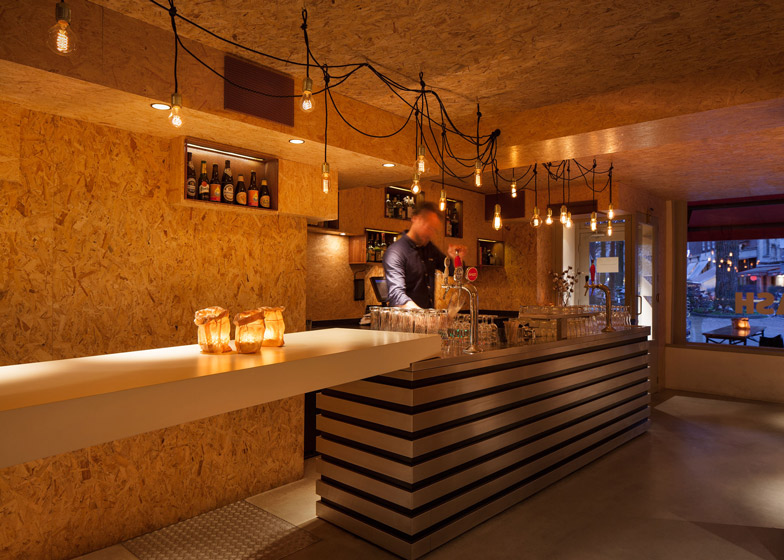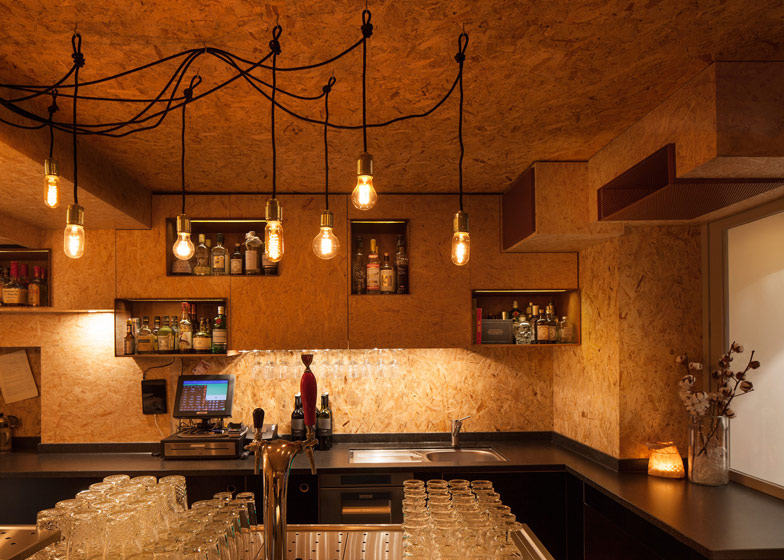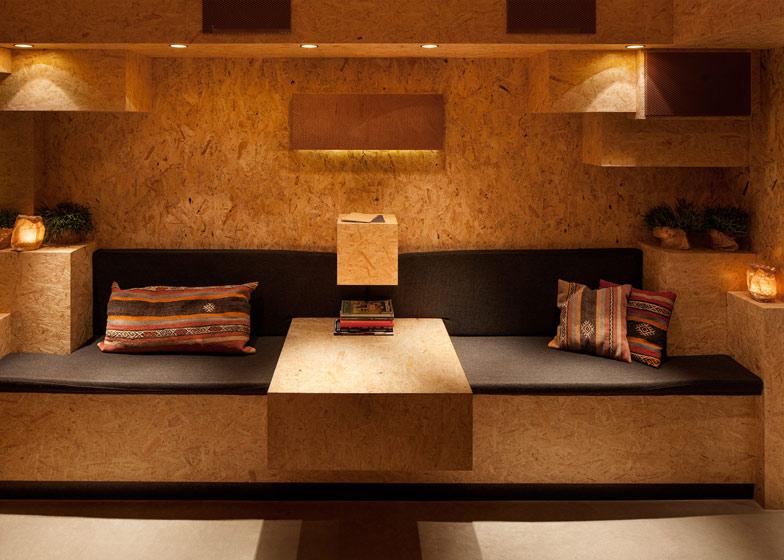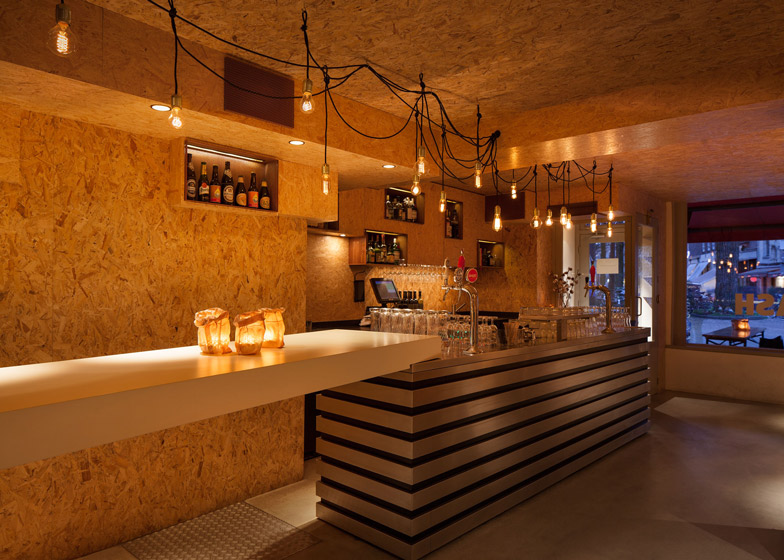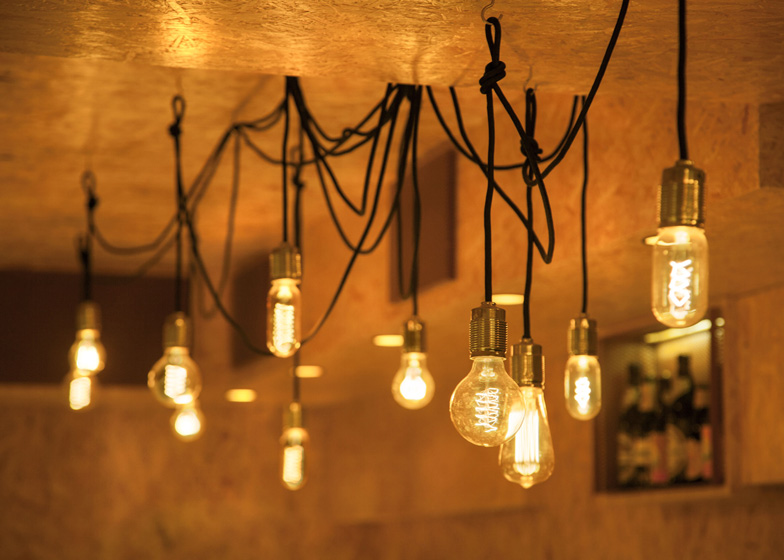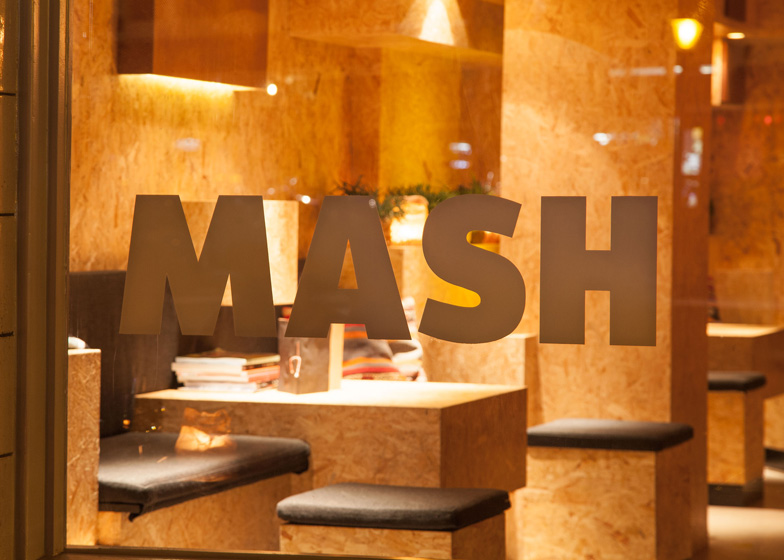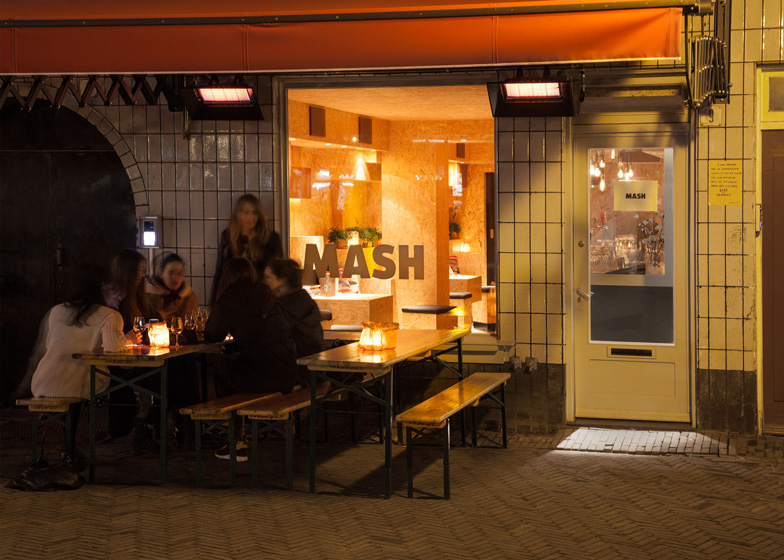Dutch design studio Ninetynine has lined the entire interior of one of Amsterdam's smallest bars with boards made from compressed strips of wood (+ slideshow).
At just 32 square metres, Mash is one of the smallest bars in Amsterdam, so the designers used materials that would create a cosy atmosphere.
"The space is not only small but has a very low ceiling as well. We wanted to create a bar that's cosy with just a bunch of friends but also spacious and functional when it's packed," Ninetynine's Jeroen Vester told Dezeen.
Ninetynine used oriented strand board (OSB) – a kind of engineered chipboard made from compressed wooden flakes – to cover walls, ceilings and built-in furniture.
"We decided to wrap everything except the floor in the same material, so the cabinets, seating blocks, tabletops, and shelves for the glasses aren't distinct from each other," said Vester.
OSB has become increasingly popular for shops and bar interiors, with recent examples including a fashion boutique in Iceland, a shoe shop in Germany and a cafeteria in Japan.
"The material is very affordable, and interestingly although it feels cheap when you can see the edges, when the shapes are constructed with mitred corners, it feels much more high quality. The wood flakes give it a nice subtle feel and the colour adds warmth to the space," added the designer.
The wooden boards also hide beams and columns, air conditioning ducts and the sound-system.
Incandescent bulbs hangs above the bar, all at different heights, creating a lighting installation that highlights the specialist range of beers and spirits that Mash sells, aiming to make the bar the focal point of the space.
The surrounding area is relatively dark, creating intimate seating corners lit only by spotlights in the ceiling.
The bar consists of two parts: a stainless steel segment that contains the operational functions, and a floating white tabletop. "Standing with four friends around the bar gives an intimate kitchen-table feel," explained Vester.
According to the designer, the bar is the only piece of independent furniture in the space which helps create an illusion of space.
"All the other functions are carved out of the walls, creating shapes that function as seating, tables and shelving," he said. "Not having any loose furniture takes away the size reference and makes the space look larger than it is."
Photography is by Ewout Huibers.

